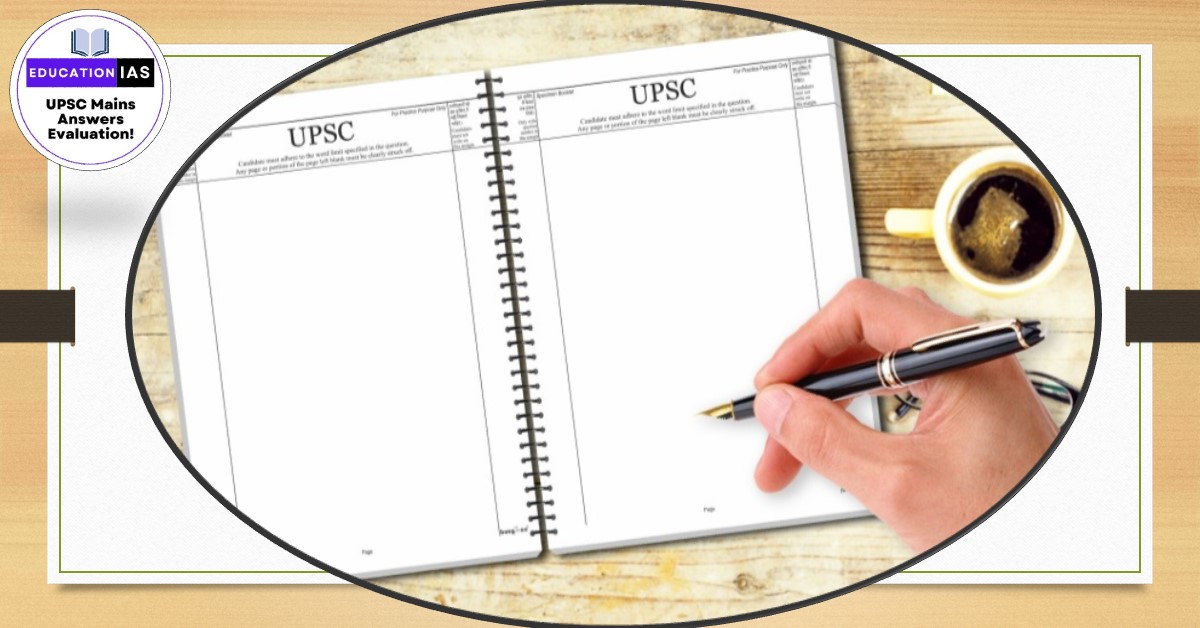Que. What changes has the Union Government recently introduced in the domain of Centre-State relations? Suggest measures to be adopted to build the trust between the Centre and the States and for strengthening federalism.
केन्द्र सरकार ने केन्द्र-राज्य सम्बन्धों के क्षेत्र में हाल ही में क्या बदलाव किए हैं? संघवाद को मजबूत करने के लिए तथा केन्द्र और राज्यों के बीच विश्वास पैदा करने के लिए उपाय सुझाइए।
Structure of the Answer
(i) Introduction: Provide a brief background on recent changes in “Centre-State relations” and highlight the importance of strengthening “federalism” and trust.
(ii) Main Body: Discuss key changes introduced by the Union Government and propose measures to build trust between the Centre and the States.
(iii) Conclusion: Summarize the need for improved “federal relations” through cooperation, trust-building, and enhancing the autonomy of states in governance.
Introduction
Recent changes in the Union Government’s policies have significantly impacted “Centre-State relations”. These shifts have stirred debates about the balance of power and autonomy for states. Strengthening “federalism” and rebuilding trust between the Centre and the states is critical for India’s democratic progress.
Changes in Centre-State Relations
(i) “GST” and Centralized Fiscal Policies: The introduction of the “Goods and Services Tax” (GST) has centralized fiscal powers, consolidating tax revenue under the Centre. While it aims to simplify taxation, states have raised concerns over loss of revenue autonomy and fiscal flexibility.
(ii) Centralization through Schemes and Direct Funding: Several welfare schemes, such as the “Pradhan Mantri Awas Yojana” and “Swachh Bharat Mission”, are centrally funded. While these schemes help streamline implementation, states feel excluded from planning and decision-making processes, impacting their autonomy.
(iii) Imposition of President’s Rule: The imposition of “President’s Rule” in states, such as Jammu and Kashmir (2019), undermines state autonomy and has led to dissatisfaction with federal governance. It raises concerns about the Union Government’s encroachment on state powers.
(iv) Abolition of the Planning Commission: The dissolution of the “Planning Commission” in 2014 and the establishment of “NITI Aayog” was meant to foster cooperative federalism. However, states have expressed concerns about the Aayog’s lack of financial and decision-making powers, making it less effective in decentralization.
(v) Increased Role of the Centre in Law & Order: The Union Government’s increasing involvement in law and order, especially through agencies like the “National Investigation Agency” (NIA), raises questions about the erosion of state authority in maintaining internal security.
Impact on States’ Autonomy and Trust
(i) Perceived Erosion of State Rights: Many states feel that recent policies and the growing influence of the Union Government are undermining their constitutional rights. “Cooperative federalism” is often seen as “competitive federalism”, where the Centre has disproportionate control.
(ii) Financial Dependence: States have become more financially dependent on the Centre for funds, particularly through schemes that bypass state governments. This has increased tensions, as states lose control over financial decisions impacting their own development agendas.
(iii) Lack of Consultation: Decisions made by the Union Government, like changes in the “GST” structure or environmental policies, are often implemented without adequate consultation with states. This has created a sense of alienation among state governments, which are supposed to have an equal say.
(iv) Concentration of Power in National Institutions: The concentration of power in institutions like the “Reserve Bank of India” (RBI) and “National Green Tribunal” (NGT) undermines the states’ ability to exercise independent authority in key areas like finance and environmental regulation.
(v) Crisis Management and State Relations: During emergencies like the “COVID-19” pandemic, the Centre’s top-down approach to decision-making caused friction with states, which felt that their concerns were sidelined in favor of national uniformity. This worsened trust in the federal structure.
Measures to Build Trust and Strengthen Federalism
(i) Enhanced Consultation and Dialogue: The Union Government should establish mechanisms for regular consultation with states before implementing significant changes in policies. Platforms like the “Inter-State Council” can play an instrumental role in fostering dialogue on crucial issues affecting both the Centre and the states.
(ii) Fiscal Autonomy and Revenue Sharing: To strengthen “federalism”, it is crucial to empower states with greater fiscal autonomy. The “Finance Commission” should review and increase the share of states in central revenues, allowing states more control over their financial resources.
(iii) Devolution of Power through Decentralization: The Union Government must implement policies that allow for greater devolution of power to states and local bodies. This would help states become more self-reliant and ensure that their decisions reflect local needs, thus enhancing federal relations.
(iv) Respect for Diversity in Policy-making: States should be allowed flexibility to adapt central policies according to their local needs. A one-size-fits-all approach, especially in areas like “education” and “health”, should be avoided to respect the diverse cultural and regional needs of states.
(v) Strengthening the Role of States in National Governance: States should be given more representation in key national institutions like the “National Development Council” or “NITI Aayog” to ensure they have an equal say in policymaking. This can improve cooperation and help build mutual trust.
Conclusion
To enhance “federalism” in India, the Union Government should focus on improving state autonomy, building trust, and ensuring that states have a larger role in governance. Cooperative federalism will strengthen India’s democratic fabric and promote inclusive growth for all regions.
